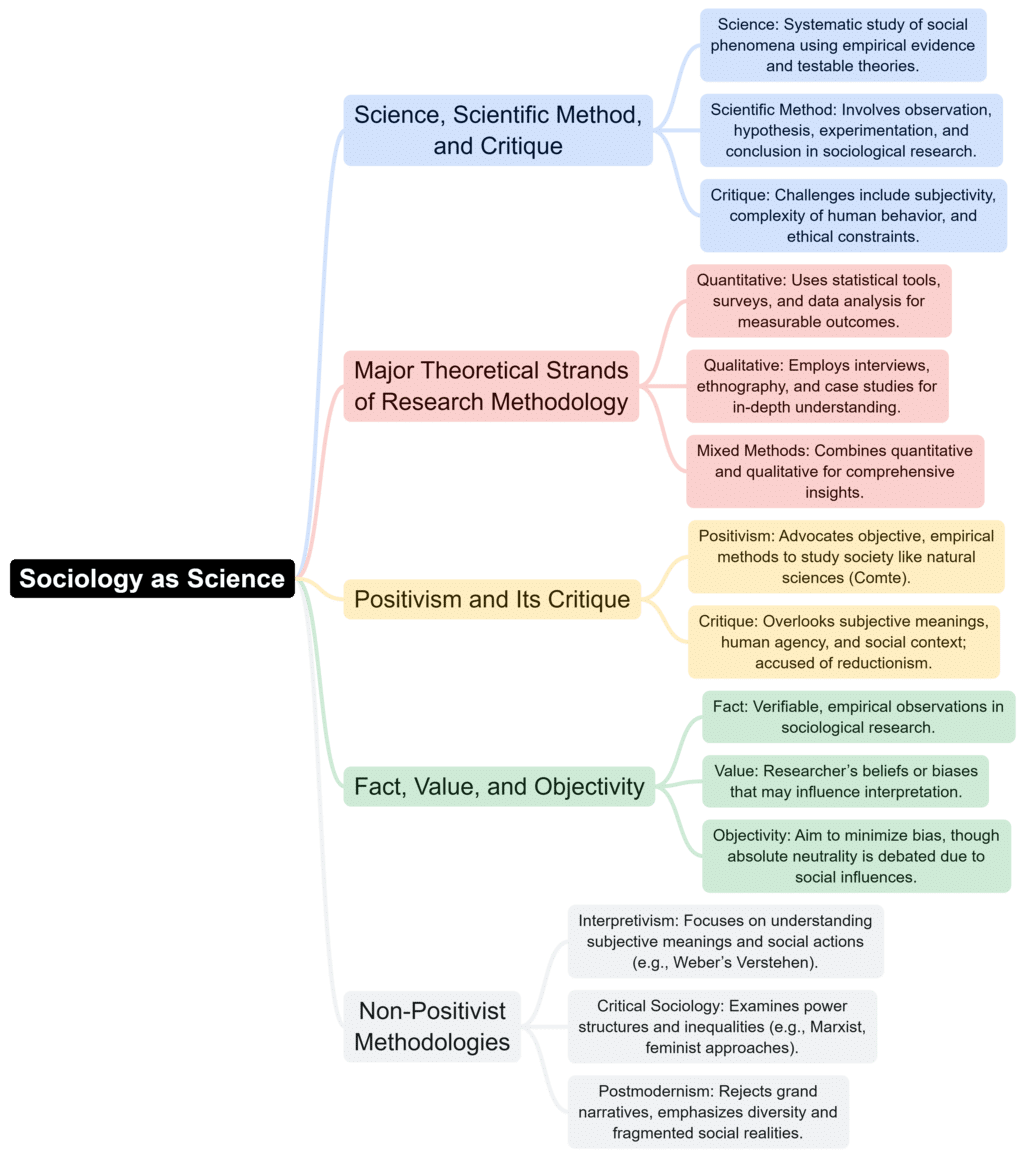UPSC Exam > UPSC Notes > Sociology Optional for UPSC (Notes) > Mind Map: Sociology As a Science
Mind Map: Sociology As a Science | Sociology Optional for UPSC (Notes) PDF Download

The document Mind Map: Sociology As a Science | Sociology Optional for UPSC (Notes) is a part of the UPSC Course Sociology Optional for UPSC (Notes).
All you need of UPSC at this link: UPSC
|
112 videos|389 docs
|
FAQs on Mind Map: Sociology As a Science - Sociology Optional for UPSC (Notes)
| 1. What is the significance of sociology as a science in understanding human society? |  |
Ans. Sociology as a science is significant because it applies systematic methods of empirical investigation and critical analysis to understand social phenomena. It helps us comprehend the complexities of social relationships, structures, and processes, enabling us to analyze issues like inequality, family dynamics, and cultural norms. This scientific approach allows for evidence-based conclusions that can inform policy-making and social interventions.
| 2. How does sociology differ from other social sciences? |  |
Ans. Sociology differs from other social sciences in its focus on social behavior, institutions, and structures at a societal level. While disciplines like psychology focus on individual behavior and economics on market dynamics, sociology examines how individuals interact within groups, the impact of social institutions on behavior, and the broader societal context that shapes these interactions.
| 3. What are the key research methods used in sociology? |  |
Ans. Key research methods in sociology include qualitative methods like interviews and ethnography, which provide in-depth understanding of social phenomena, and quantitative methods like surveys and statistical analysis, which allow researchers to analyze data from a larger population. These methods can be combined in mixed-methods research to provide a comprehensive view of social issues.
| 4. How does sociology contribute to social change? |  |
Ans. Sociology contributes to social change by identifying and analyzing social issues, understanding the dynamics of social movements, and providing insights into how societal structures can be modified. Sociologists often engage in activism and policy advocacy, using their research to promote social justice, equality, and public awareness of critical social issues.
| 5. Why is it important for UPSC aspirants to study sociology? |  |
Ans. It is important for UPSC aspirants to study sociology because it helps them understand the social dimensions of issues they will encounter in governance and public administration. A solid grasp of sociological concepts enhances critical thinking and analytical skills, which are essential for tackling societal challenges, forming policies, and addressing the needs of diverse communities in India.
Related Searches
















